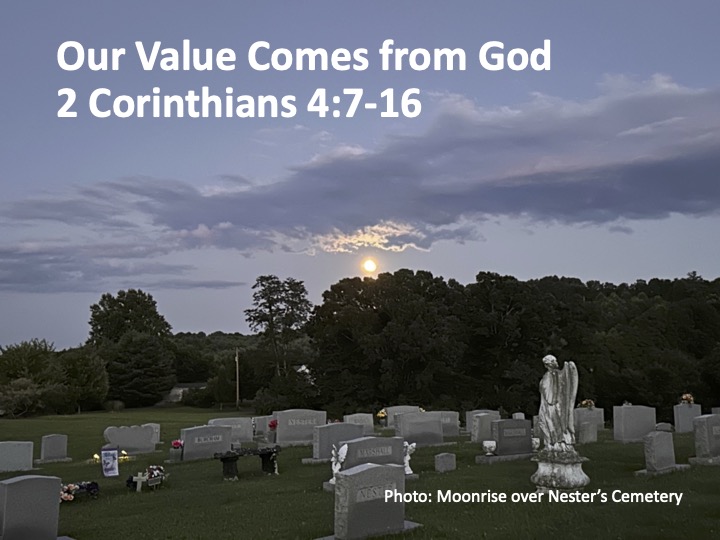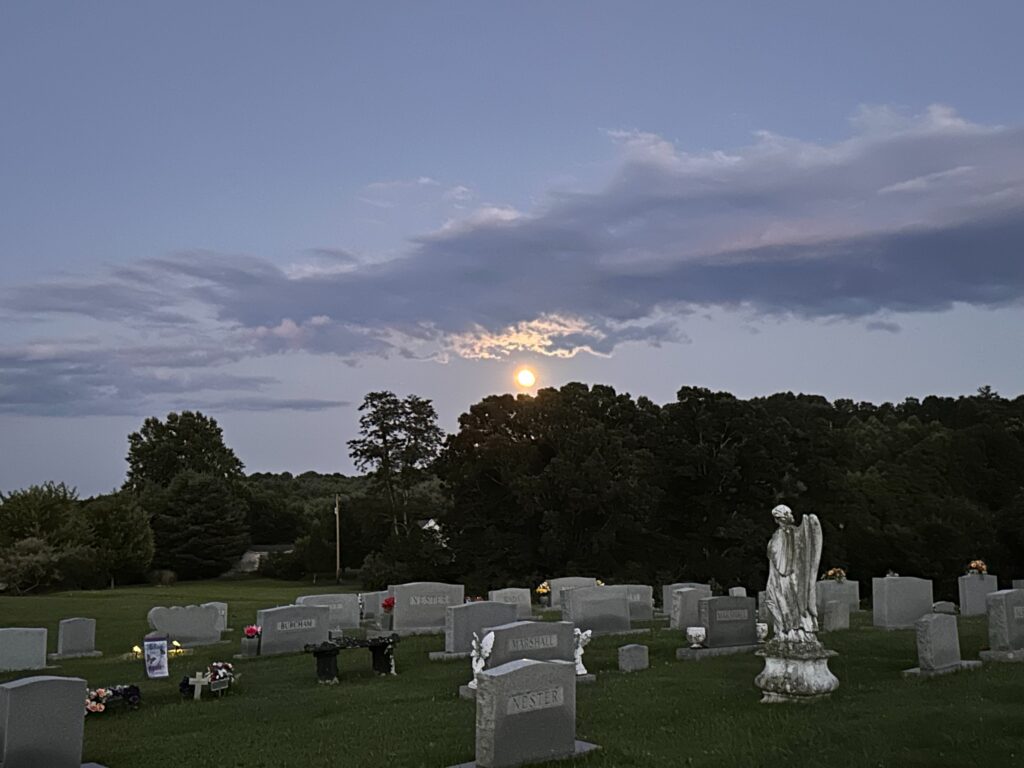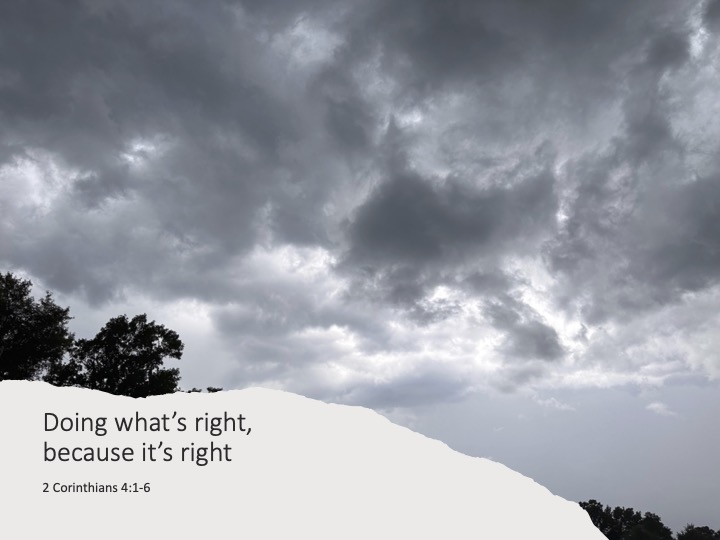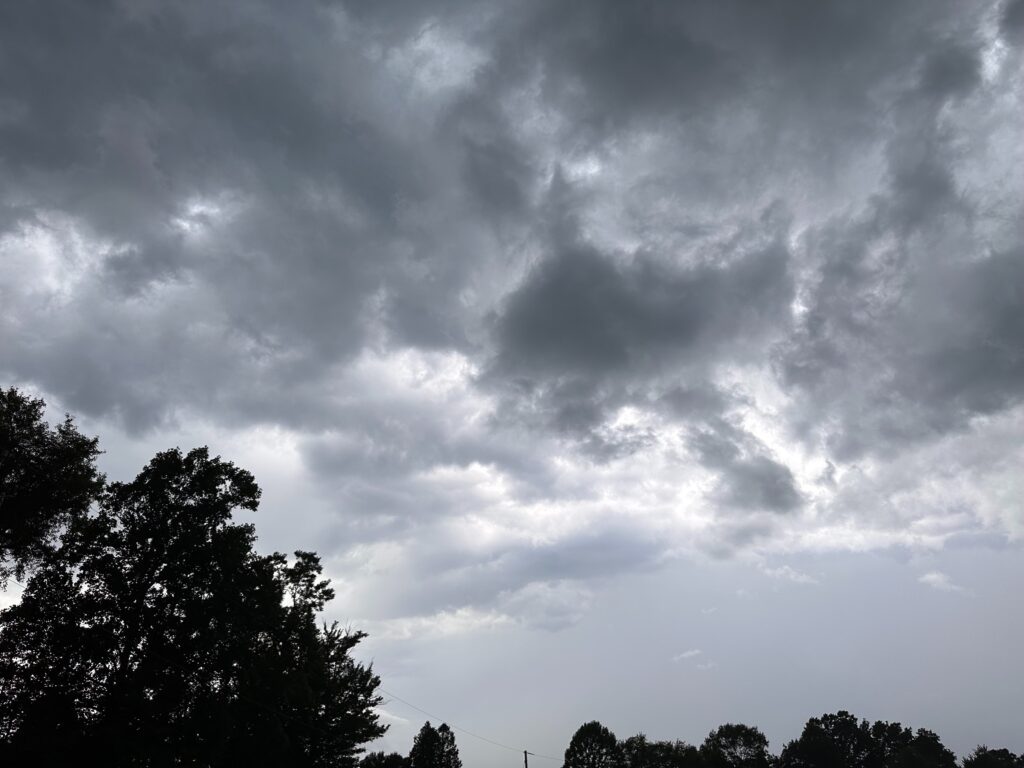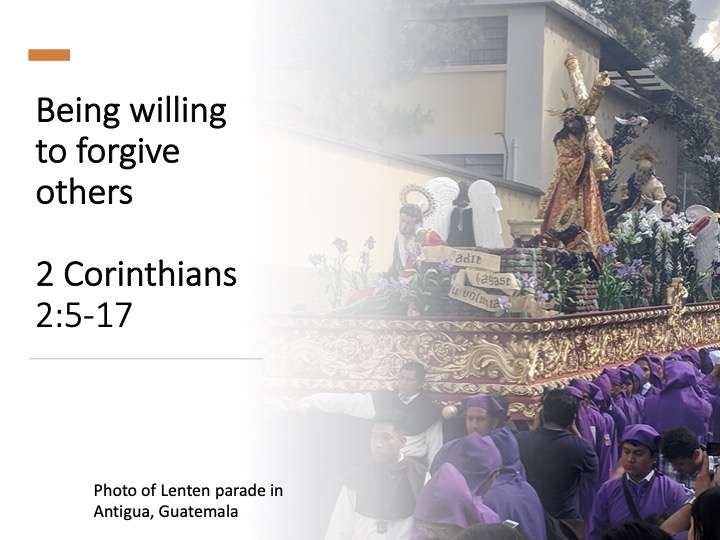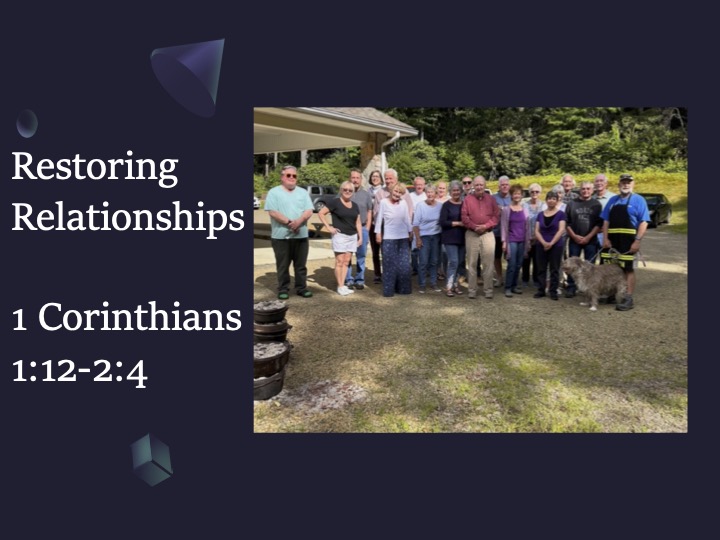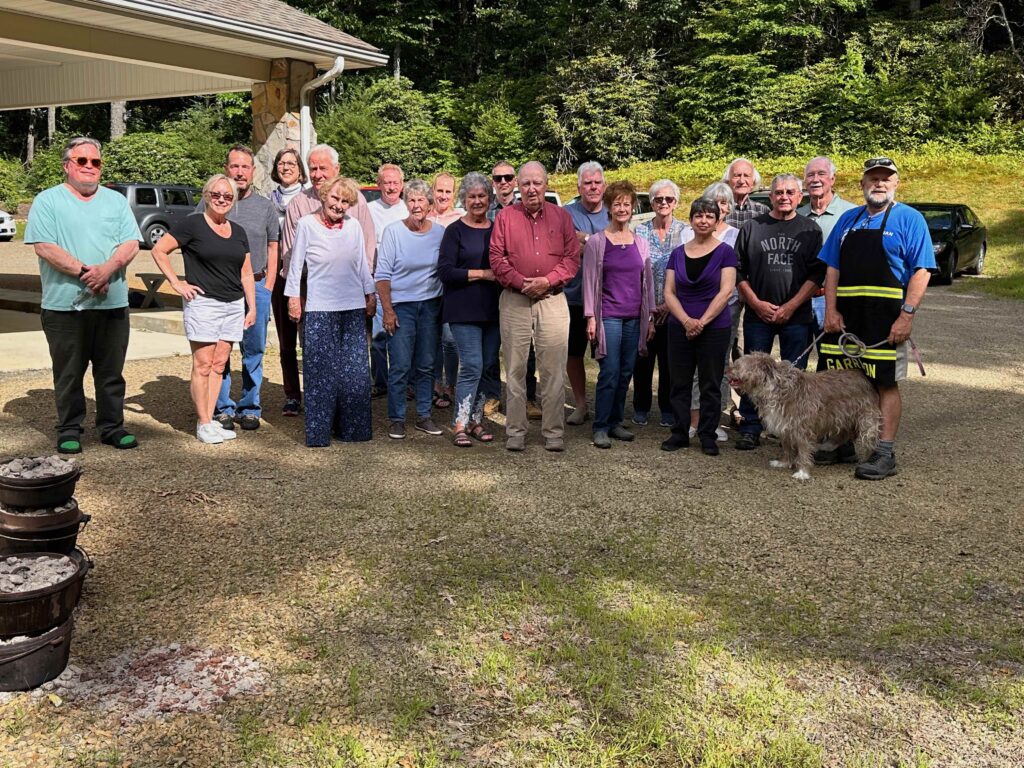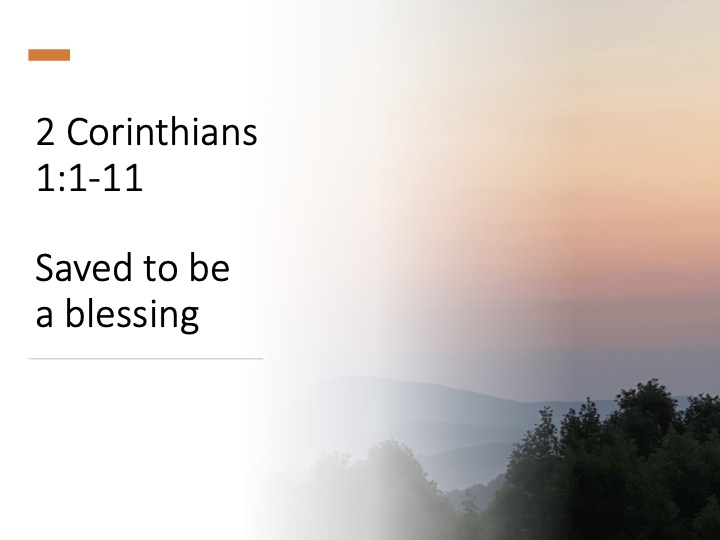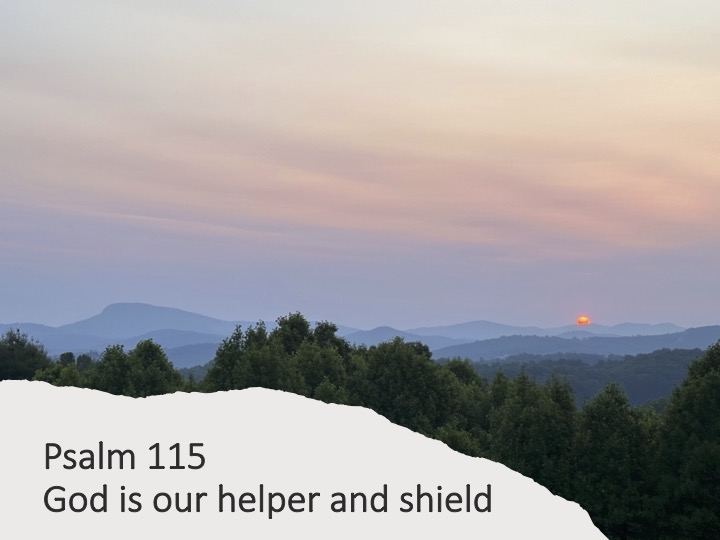Jeff Garrison
Mayberry and Bluemont Churches
2 Corinthians 6:1-11
August 27, 2024
At the beginning of worship:
Without looking in your Bibles which I hope you have with you, can any of you recite Psalm 118:24? Anyone want to try? I bet if I started the verse, many of you could finish it.
The verse begins, “This is the day the Lord has made.” I often use it at the beginning of worship. And how does the verse end? “Let us rejoice and be glad in it.
I occasionally like to use this Psalm at the opening of worship on a less than picture perfect day. Of course, if the day is nice (clear skies, with a Goldilocks’ temperature-not too hot, not too cold, just right), Psalm 118:24 makes sense. But what about when the skies open and everything is wet? Or when a cold wind blows? Or it’s steamy hot? Can we, with the same vigor, recite, “This is the day the Lord has made, let us rejoice and be glad in it.”
I hope you can, for everyday is another day for us to praise and worship our God. We should find something to praise every day and every moment that we have a breath.
Before reading of the Scripture:
Last week, as we looked at the end of the 5th chapter of 2 Corinthians, we heard Paul calling his hearers to be a part of God’s team working for reconciliation within the world. Today, we’ll see examples of how he strived for reconciliation among his distractors in Corinth. This is all part of Paul’s effort to defend his ministry to the believers in Corinth. His defense is an important context for us to understand what he means in this passage, as I’ll show later. It is always important to take a passage of scripture in context to remain truthful to the Scriptures.
Read 2 Corinthians 6:1-13
I remember a sign on Carolina Beach Road, south of Monkey Junction, back in the late 1960s. It was old by then, I bet it was put up in the 40s, sticking up in that white sugar-like sand dotted with wire grass, longleaf pines and blackjack oaks.. The sign featured a simple design. A white background with bold black letters spelling out, “Get Right with God.” As a kid, it seemed to serve as a wake-up call. It might soon be too late, I’d worry, as I said a prayer.
While the advice is good, I’m not sure of its intention nor effectiveness. Yes, we need to “get right with God,” but it’s not a one-time prayer or something to be done out of fear. Instead, those of us who follow Jesus are called to journey. Before the word church came into regular use, those who followed Jesus were known as people of “the Way.”[1] Paul himself speaks of us working out our salvation. But if we sense the goodness of God, we work it out without fear. We’re on “the way,” every day, enjoying the benefits God bestows on us.
Paul is still defending his ministry
While Paul has been defending his ministry throughout much of what we have explored in 2nd Corinthians, he now changes how he addresses the Corinthians. He’s been talking to them (including himself) using the pronoun “we.” Our first verse begins like this, too. “As we work together with him (or God). But beginning in the second half of the first verses of the sixth chapter, Paul shifts. He addresses the Corinthians personally and directly. “You” he says, should not “accept the grace of God in vain.”[2]
An Acceptable Time
Then, quoting from Isaiah,[3] he reminds them of God saying that he has heard us at an acceptable time, and on the day of salvation has helped us. Next, Paul immediately reminds his listeners that now is the acceptable time, now is the day of salvation.
One could easily mistake the meaning of this text if taken out of context. It could be effectively used as an altar call with the preacher saying, “now is the time, you better get up here and repent.”[4] It’s kind of like that old sign on Carolina Beach Road, before it rotted and fell or succumbed to construction. But that’s not Paul’s meaning here. First, Paul writes to believers in Corinth. Second, he is defending his ministry against some of their complaints. So, this passage isn’t about getting right with God today, although that is never a bad idea. Instead, he wants the Corinthians to return to their original love and beliefs in Jesus Christ and to follow him.
Paul sees salvation as a process. It’s not just us intellectually confessing that Jesus as Lord. That’s just the beginning. Instead, by admitting Jesus is our Lord, the one in whom we find life and meaning, means we live for him and not for ourselves. Paul makes this point clear throughout this letter.
So, what is the acceptable time? What is the day of salvation of which Paul speaks? He’s quoting from Isaiah, who speaks of the day when God releases Israel from exile. But Paul, whose understanding of what God is now doing, expands this concept. It’s not just about the temporal salvation of the Israelites. All of God’s creation are included. Even gentiles, like us. This day, the day Paul refers to, is the time between the Christ’s ministry and his return. We’re living in this day and need to make the best of the time we have on hand as we join with God in the work of reconciliation.
No obstacles
In verse three, Paul speaks of how he and his fellow disciples have not placed any obstacles in front of the Corinthians (or others, to whom he has preached). Think of Paul’s ministry. He stood up for the rights of the gentiles.[5] He didn’t see the need for them to become Jews first: to be circumcised, or to observe dietary laws.[6] God’s grace is freely given, they could just accept it and out of gratitude follow Jesus. Wanting to reconcile the gentile world to God, Paul will do what he can not to create barricades.
Nine sufferings
Next, Paul moves on to further defend his ministry with a series of what he and his fellow missionaries have done on behalf of those with whom they’ve ministered. He lists nine sufferings they’ve endured:
- afflictions,
- hardships,
- calamities,
- beatings,
- imprisonments,
- riots,
- labor,
- sleepless nights,
- and hunger.
Despite suffering, showing inward traits
Following Jesus wasn’t the easy option for Paul. Then he lists seven “inward” traits they’ve shown:[7]
- purity,
- knowledge,
- patience,
- kindness,
- holiness of spirit,
- genuine love,
- truthful speech,
- and the power of God.
If we’re following Jesus, we must strive to live in a way that our lives show such traits even when enduring difficulties. People need to experience our patience, kindness, and love. We need to be known for telling the truth, even when it may be easier to color the truth a bit. Since we’re to live for Christ and not ourselves, like Paul, we can’t take the easy way out.
Peacefully armed
Paul then includes a military analogy. He’s armed with the weapons of righteousness, one in both hands. Following this right after mentioning the power of God, I think Paul refers to such weapons metaphorically, as he does when he speaks of the armor of God in Ephesians.[8]
Certainly, Paul doesn’t equate such weapons as offensive, after having just listed traits which would go against such an idea. Yes, he has weapons, but they are from God, and they are not used to bring vengeance on those who have mistreated him. Instead, he’s given power to continue despite such misfortune as he’s already endured.
antitheses
Paul then shifts into providing several antitheses that demonstrate his status as a missionary.
- He’s treated as an imposter but he’s true.
- He’s seen as unknown, but is known (especially to God, as he pointed out in the last chapter[9]).
- He’s seen as dying, yet he’s very much alive.
- He’s viewed as punished, but has not been killed, sorrowful yet rejoicing,
- poor yet making others rich,
- having nothing yet owning it all.
Speaking as to children
This section concludes with Paul reminding the Corinthians of his frankness in speech and how his heart has been open to them. While there is no restriction from his position, he finds some in Corinth, with those who challenged his ministry. He encourages them to open their hearts. Paul speaks simply as to how we might speak to children. This might sound strange at the end of such a plea, but as Jesus says, for us to enter the kingdom of God, we must do so as a child.[10]
While many in Corinth have questioned Paul’s intentions, the Apostle doesn’t write them off. Instead, he strives to reconcile himself to them, with a vision of them together working for God’s kingdom. As for how we apply this text to our lives, let me suggest a couple of ways.
worthy of RECONCILIATION
First, if we feel we’re done with church, we should know God doesn’t write us off. God loves us. And hopefully, within the church, there are folks those like Paul who strive to reconcile with us and bring us back into the fold.
Perhaps some of us are being called to be Paul and to work for reconciliation with those who are estranged within our community. As Paul shows, such work can be difficult, but it’s godly labor.
Paul as an example
Finally, we should use Paul as a model, as an example of faithfulness. Paul endured a lot, yet he maintains his Christ-like traits. And we should do the same. Just because we’re attacked or abused by others, doesn’t mean we need to go low and resort to their tactics. We’re not to seek revenge. Instead, as followers of Jesus, those who are on the Way, we’re to take the high path. We show the virtues of our Savior, who willingly gave his life so that we might have life everlasting. Amen.
[1] Acts 9:2. Followers weren’t known as Christians until later in Antioch, see Acts 11:26. Jesus declares himself to be “The Way” in John 14:6.
[2] Paul Barnett, The Second Epistle to the Corinthians (Grand Rapids, MI: Eerdmans, 1997), 315-316.
[3] Isaiah 49:8.
[4] Barnett, 319.
[5] See Galatians 2:11-14. Paul rebukes Peter for how he treated gentiles.
[6] Paul spends much of his letter to Galatians insisting they didn’t first need to become a Jew. He also has proclaimed in his first letter to the Corinthians that they ’don’t need to be circumcised or observe the dietary laws.
[7] Ernest Best, Second Corinthians: Interpretation, A Bible Commentary for Teaching and Preaching (Louisville, KY: John Knox Press, 1987), 61.
[8] Ephesians 6:10-20.
[9] 2 Corinthians 5:11.
[10] Mark 10:13-15 and Luke 18:16-17.






